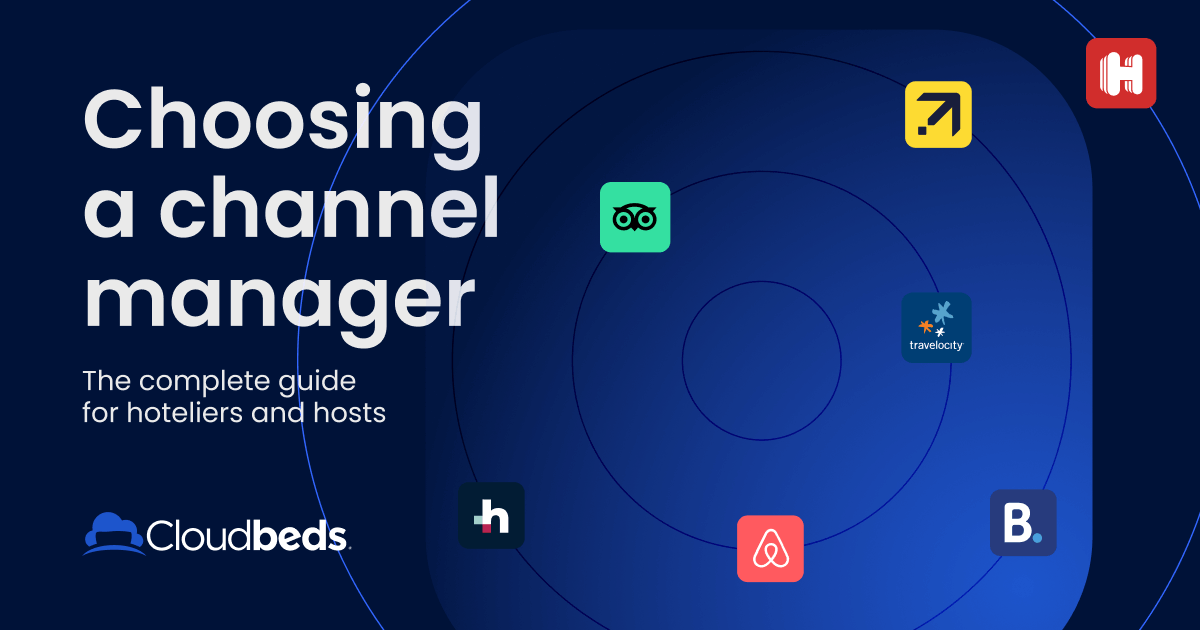
By Kristy Espat
With booking activity scattered across so many channels today, accommodation providers are encouraged to pursue a diverse distribution strategy, working with various booking channels to maximize reach.
One important channel often overlooked by small and midsized properties – and whose role in distribution is frequently misunderstood – is bed banks.
Here, we demystify bed banks, explaining how they work, the benefits and potential pitfalls of working with them, and options to consider for your property.
A bed bank is a company that contracts hotel rooms and other travel services from travel suppliers and markets them to third-party resellers, typically online travel agencies (OTAs), travel agents, tour operators, airlines, and loyalty membership programs. Accommodations may be bundled into packages with transportation, meals, and activities. Unlike other travel sellers, however, bed banks operate as a wholesaler, selling products to other businesses rather than directly to consumers. What is a bed bank?
Bed banks are important to hotels because they provide a means of distributing room inventory through a large, global network of travel retailers. Traditionally in the travel industry, wholesalers and bed banks have been favored by large, leisure properties and hotel chains with lots of rooms to sell, but advances in technology have opened these platforms to smaller properties too, from boutique hotels and inns to hostels and vacation rentals.
How do bed banks work?
While each bed bank operates a bit differently, they all share a similar model. Bed banks seek partnerships with travel suppliers in the destinations they serve to provide accommodations, flights, car rental, airport transfers, tickets, and other ancillary services. If a supplier meets the bed bank’s needs (and vice versa), it signs a direct contract giving the bed bank permission to promote and sell its products to other travel businesses. In return, the property agrees to extend a net rate or discount off advertised rates. Lodging operators may also be asked to commit blocks of guest rooms over certain dates or to provide additional services such as meals and activities.
The bed bank marks up the hotel’s rates and promotes the property through its network of resellers, along with a portfolio of other properties and travel services. In turn, the reseller adds a markup or commission of its own when it sells rooms and packages to travelers. This places multiple intermediaries between the hotel and the traveler, each of which takes a cut of the room rate.
In the past, wholesalers printed large, detailed brochures to showcase their offerings. Today, most merchandising has shifted online. Most bed banks operate an online platform or marketplace that features listings of partner hotels and other products along with descriptions, services, amenities, imagery, and availability.
Hotel partners can connect directly to the platform through their property management system (PMS) or channel manager using an application programming interface (API). This allows rates and availability to be updated in real-time, preventing overbookings and lost room sales.
What are the benefits of using a bed bank?
As mentioned, the main benefit of bed banks to accommodation providers is distribution – providing exposure to travelers worldwide through a network of travel agencies, tour operators, OTAs, and other resellers. Moreover, because bed banks act as an intermediary, hotels don’t have to maintain relationships and manage inventory and messaging with a multitude of companies; the bed bank is the main point of contact. Not only does this simplify a complex network of transactions, but it also speeds up the booking process.
Bed banks also help hotels reach independent and group travelers who prefer to book with travel agents and OTAs over booking directly via the booking engine, as well as those who like to purchase airfare, transfers, meals, and excursions as part of a package. This includes leisure travelers, international travelers, and even conference and event attendees.
Selling rooms through a bed bank can also save hotels marketing costs by consolidating a high volume of room sales under one booking channel. Hotels can earn more revenue, too, because travelers often book further in advance, stay longer, and book breakfast and other services with their stay. Advanced bookings provide a base of business upon which hotels can build a higher-rated business.
Potential pitfalls of hotel bed banks
While the advantages are great, there are downsides to be aware of too. Some lodging operators are reluctant to work with bed banks because they often require heavily discounted, fixed rates, making it more difficult to manage a dynamic pricing strategy. Some hoteliers prefer to work directly with OTAs, where they have more control over pricing and stay restrictions and can retain a higher portion of room revenue.
Another consideration is that wholesalers may require commitments for room blocks well in advance, tying up inventory that might otherwise be sold to a more lucrative client such as a group or conference. Any unsold rooms are released back to the hotel – often 30 days prior to arrival or even less, depending on the agreement – and by then, it might be too late to sell the rooms and get full occupancy.
However, today’s bed banks tend to be more flexible than traditional wholesalers. Technology allows rates and inventory to be managed dynamically, with direct connections to the PMS or channel management system, allowing real-time updates.
Another challenge is that since bed banks work with such a broad range of resellers, it’s not always clear where hotel bookings are coming from. If a reseller advertises wholesale special rates directly to the public – a frequent complaint of hoteliers –it can undercut the hotel’s direct rates, eroding traveler trust and discouraging direct bookings. It can also result in penalties from OTAs if rate parity agreements are violated. While rate discrepancies are easily viewable on metasearch platforms like Google, Trivago, and Kayak, tracking down the source of the discrepancy isn’t always easy.
How to choose a bed bank for your property
Interested in finding out more about working with a bed bank? A good place to start is to check out bed bank offerings online to find those that operate in your destination and work with your type of property. Consult with other lodging operators in your area to see if they work with bed banks and any recommendations or advice they might have.
Some bed bank websites have the option to list your property online and will guide you through the steps, providing important information along the way. Contact them directly to inquire about travel volume in your region and the accommodation providers and resellers they work with.
Be sure to ask about rate requirements, credit card processing, and other policies, ensuring that the bed bank and its distributors will commit to never advertising net rates publicly. If a bed bank requires heavy discounts or generous room allotments that will significantly impact your flexibility and profits, it might be best to cancel that plan.
Finally, check out the connectivity options and find out if the bed bank offers direct integration with your PMS or channel manager. The more automated the process, the less manual work will be required of you.

List of bed bank providers
To help you find the right bed bank for your property, here’s a list of some of the most popular operators around the world.
HotelBeds
HotelBeds, the largest business-to-business (B2B) travel network in the world, with 71,000 travel distributors and 300,000 properties in 150 source markets. Based in Palma, Spain, the company purchased GTA and Tourico Holidays in 2017, establishing itself as the leader in the bed bank space.
WebBeds
Formed in 2013, Singapore-based WebBeds is the second-largest and fastest-growing bed bank in the world. The company’s WebBeds Marketplace features travel products from suppliers around the world and distributes them to a global network of over 44,000 travel companies in more than 145 source markets.
HPro Travel
Istanbul, Turkey-based HPro Travel (formerly HotelsPro) is one of the leading global B2B hospitality marketplaces, offering a platform designed to be accessible and user-friendly and offer quick access to the best deals. The company serves one million hotels and apartments and 70,000 destinations worldwide.
Travco
Founded in 1988, Travco is a family-owned and operated wholesaler based in London, England. In 2016, the company booked two million room nights in more than 1,000 destinations worldwide, working with over 12,000 booking partners.
Bonotel Exclusive Travel
With headquarters in Las Vegas, US, Bonotel positions itself as the leading inbound tour operator for travel in North America and the only one that specializes in exclusive luxury travel, like beach resorts. The company works with over 2,600 travel agencies around the world.
Restel Hotels
Founded in 1982 and owned by Spain-based Hotusa Group, Restel Hotels is a distribution platform for hotel accommodation and tourist services, working with over 25,000 travel agencies and 125,000 establishments in 150 countries.
Yalago
One of the newest players in the bed bank space, Yalago launched in 2017 and is part of Dubai, UAE-based Emirates Group. Yalago specializes in destinations in the Middle East, the Indian Ocean, Southeast Asia, the Mediterranean, Florida, and the Caribbean.









